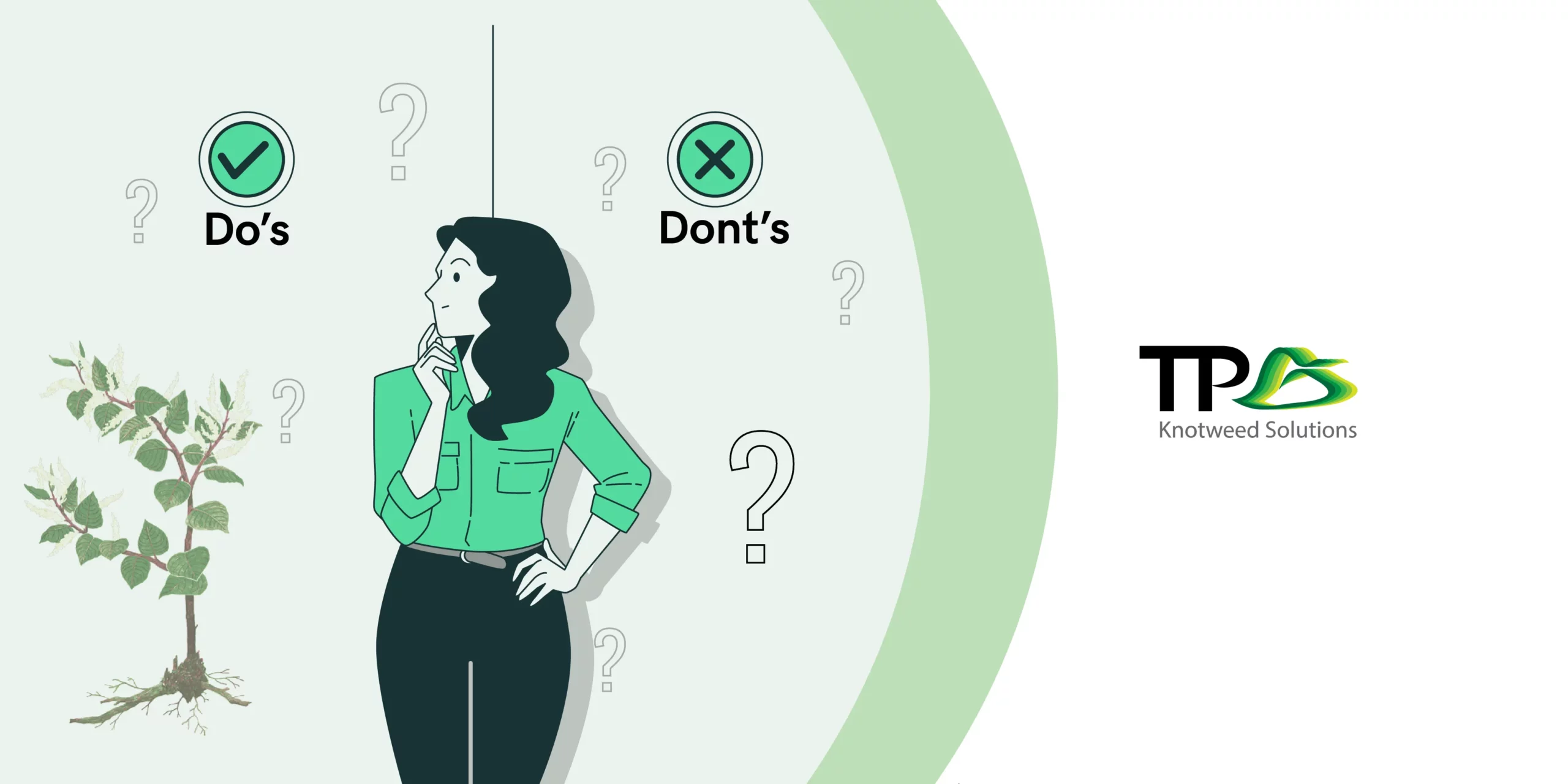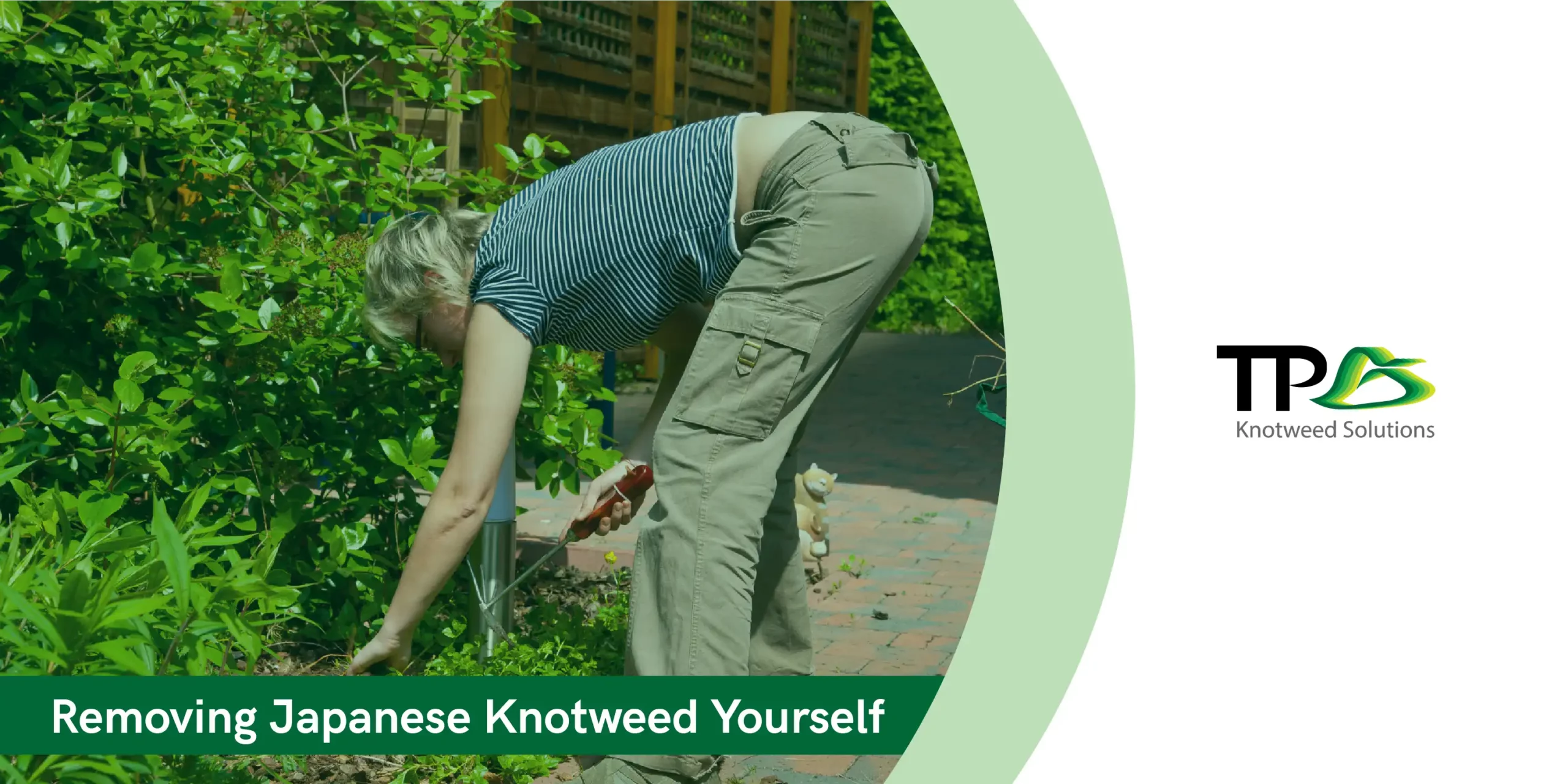Japanese Knotweed is a stubborn and invasive plant that can cause significant damage to properties and the environment. If you suspect that you have come across this notorious plant, it is crucial to take prompt action. In this article, we will guide you on what you should do if you find Japanese Knotweed and also highlight what actions to avoid. Let’s dive right in!
Do Take Action When You Discover Japanese Knotweed:
When you first come across Japanese Knotweed, it is essential to address the issue immediately. Ignoring its presence can lead to spreading and further infestation, making it much more challenging to eradicate in the future. Act promptly to prevent its roots from growing deeper and causing potentially costly damage to your property.
Do Research on How to Protect Yourself from Further Infestation:
Knowledge is power when dealing with Japanese Knotweed. Take the time to learn about the plant’s characteristics and growth patterns. Educate yourself on the signs that indicate its presence and the potential risks associated with it. Being well-informed will enable you to take the necessary precautions to protect yourself and your property from further infestation.
Do Notify Neighbours and the Council When Japanese Knotweed Has Been Discovered:
When you find Japanese Knotweed on your property, it is crucial to notify your neighbours and the local council. This way, they can also be on the lookout for any signs of the plant on their own properties. Alerting the council is particularly important as they may have guidelines and regulations in place for the responsible removal of Japanese Knotweed.
Do Use a Professional Company to Remove Japanese Knotweed:
Attempting to remove Japanese Knotweed on your own can be risky and often ineffective. It is best to leave this task to the experts who are trained in safe and efficient removal methods. By hiring a professional company that specializes in Japanese Knotweed removal, you can ensure that the plant is eradicated correctly and minimize the chances of regrowth.
Do Spread Awareness of Japanese Knotweed:
In addition to taking action on your own property, it is important to spread awareness about Japanese Knotweed. Inform your friends, neighbours, and community about its invasive nature, its potential impact on property values, and the importance of early detection. By educating others, you can help prevent the spread of this destructive plant.
What Not to Do If You Find Japanese Knotweed:
Don’t Cut Down Japanese Knotweed:
Cutting down Japanese Knotweed might seem like a quick and easy solution, but it’s far from effective. In fact, this practice can stimulate further growth as the plant redirects its energy to regrow from its extensive underground rhizome system. Cutting the plant can also lead to accidental spreading, making the problem even more challenging to control.
Don’t Try to Dig Up Japanese Knotweed:
While it may be tempting to dig up Japanese Knotweed, especially if it seems relatively small, this method is highly discouraged. The plant’s extensive root system can stretch several meters deep and spread horizontally, making it nearly impossible to remove entirely by digging. Inadvertently breaking off fragments of the plant can result in further spreading and regrowth.
Don’t Add Japanese Knotweed to Compost:
Putting Japanese Knotweed in your compost bin is a recipe for disaster. The plant is incredibly resilient and can survive composting processes, allowing it to spread easily when the compost is used in other areas. Proper disposal methods are crucial to prevent accidental propagation.
Don’t Take Japanese Knotweed to Your Local Recycling Centre:
Disposing of Japanese Knotweed at your local recycling centre is not advisable. These facilities are not equipped to handle the plant’s invasive nature, and inadequate handling can lead to its accidental spread. Always consult with your local council or a professional removal company for guidance on proper disposal.
Don’t Dump Garden Waste Contaminated with Japanese Knotweed in the Countryside:
Dumping garden waste contaminated with Japanese Knotweed in the countryside is not only illegal but also highly irresponsible. Implementing this practice can result in severe ecological damage and the spread of the plant to new areas. Always follow proper disposal protocols and never transport Japanese Knotweed-infested waste to other locations.
Still Unsure? We Can Help:
If you are uncertain about whether you have discovered Japanese Knotweed or need guidance on the best course of action, our team of experts at TP Knotweed is here to assist you. We specialize in Japanese Knotweed identification, removal, and disposal, providing effective and reliable solutions to tackle this invasive plant. Contact us today for a consultation and let us help you regain control of your property.
Remember, the key to effectively managing Japanese Knotweed is prompt action, proper disposal, and spreading awareness about its invasive nature. Together, we can combat this persistent plant and preserve the beauty and value of our landscapes.




